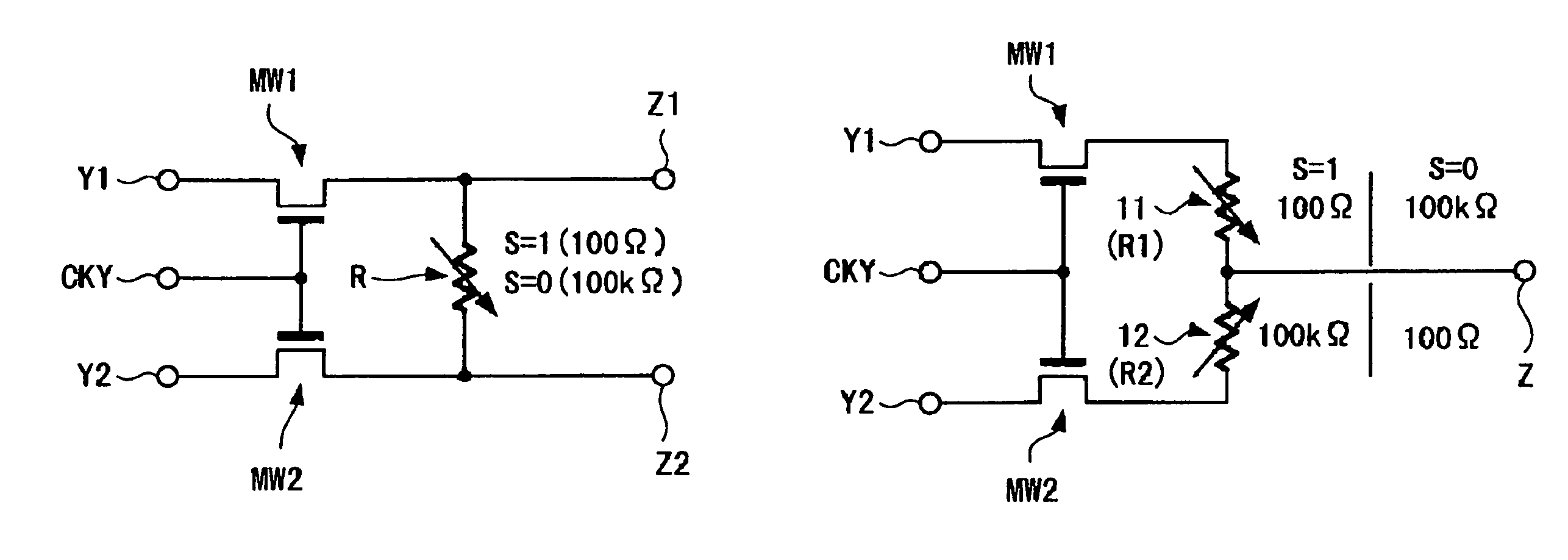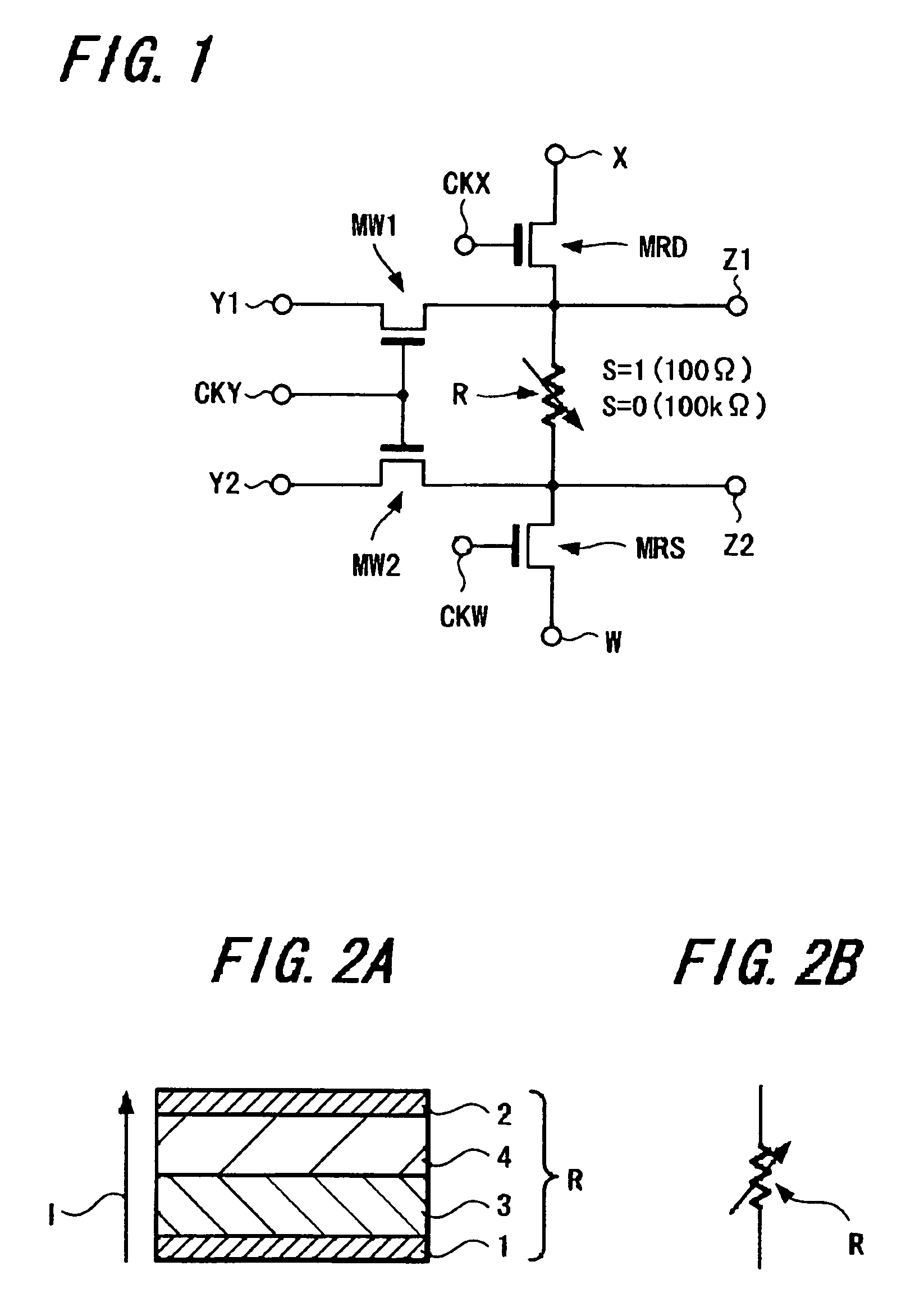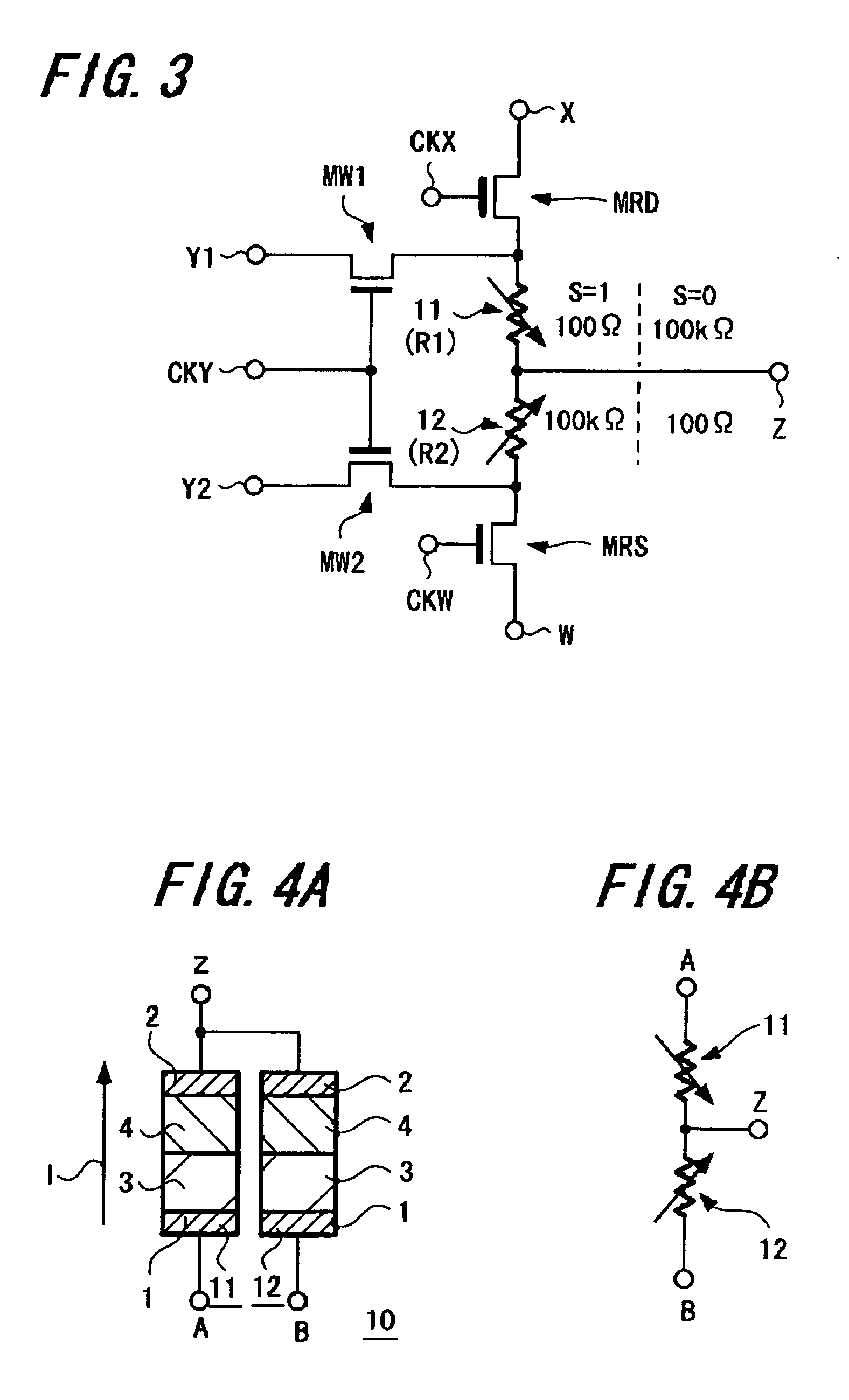Arithmetic circuit integrated with a variable resistance memory element
a memory element and variable resistance technology, applied in the field of arithmetic circuits, can solve the problems of low writing voltage and complicated peripheral circuits, and achieve the effect of controlling power consumption
- Summary
- Abstract
- Description
- Claims
- Application Information
AI Technical Summary
Benefits of technology
Problems solved by technology
Method used
Image
Examples
Embodiment Construction
[0120]As an embodiment of the arithmetic circuit of the present invention, a schematic configuration diagram (circuit diagram) is shown in FIG. 1.
[0121]This arithmetic circuit constitutes the logic-in-memory mentioned above, and includes one non-volatile device and four MOS transistors for the control use.
[0122]In the arithmetic circuit according to an embodiment of the present invention, a variable resistance element R is specifically used as the non-volatile device instead of the various non-volatile devices described above (such as a ferroelectric, ferroelectric capacitor and TMR element).
[0123]In a variable resistance element R, a terminal Z1 and a terminal Z2 are provided at both ends.
[0124]In a MOS transistor MRD, a source is connected to the terminal Z1, and a drain is connected to an external input X, and a terminal of clock CKX is connected to a gate.
[0125]In a MOS transistor MRS, a source is connected to the terminal Z2, and a drain is connected to an external input W, and...
PUM
 Login to View More
Login to View More Abstract
Description
Claims
Application Information
 Login to View More
Login to View More - R&D
- Intellectual Property
- Life Sciences
- Materials
- Tech Scout
- Unparalleled Data Quality
- Higher Quality Content
- 60% Fewer Hallucinations
Browse by: Latest US Patents, China's latest patents, Technical Efficacy Thesaurus, Application Domain, Technology Topic, Popular Technical Reports.
© 2025 PatSnap. All rights reserved.Legal|Privacy policy|Modern Slavery Act Transparency Statement|Sitemap|About US| Contact US: help@patsnap.com



